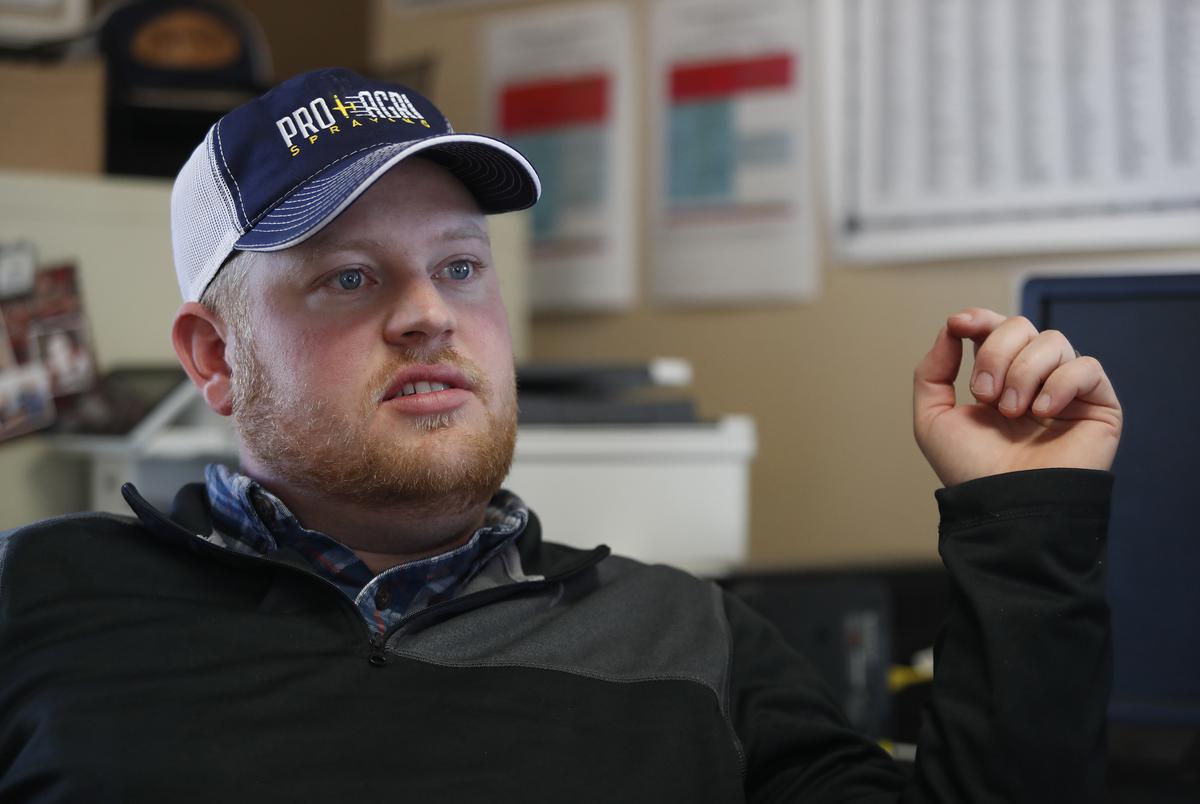The department’s helpline is less than a year old. But advocates hope state lawmakers fully fund it as farmers and ranchers continue to face hard economic times and isolation.
Sign up for The Brief, The Texas Tribune’s daily newsletter that keeps readers up to speed on the most essential Texas news.
For 24/7 mental health support in English or Spanish, call the Substance Abuse and Mental Health Services Administration’s free help line at 800-662-4357. You can also reach a trained crisis counselor through the Suicide and Crisis Lifeline by calling or texting 988.
SLATON — Grant Heinrich was working in the office on his family’s farm when he got a text message from one of his closest friends and farm hands.
A suicide note.
Heinrich jumped in his truck and sped to the barn. The West Texas roads seemed like a tunnel with blurred walls of crops curving around him.
“The only thing on my mind was to hurry and get there,” Heinrich said. “I blew a hose on my truck, but I knew if I was late, I would beat myself up about it for the rest of my life.”
Suicide felt like a plague on Heinrich’s family. He lost his uncle 24 years ago. Then one of his cousins, who Heinrich saw as a superhero, died nine years ago. Two years after that, another cousin died by suicide.
“I have witnessed too much pain for the rest of my family,” he said.
During the last two decades, there have been higher rates of suicide in rural communities than in urban areas. And it’s getting worse. According to the Centers for Disease Control and Prevention, suicide rates have increased 46% in rural America, compared to a 27.3% increase in metro areas. And rural residents go to the emergency room 1.5 times more to be treated for self-harm incidents.
For farmers, the rate is higher – 3.5 times more than the general population, according to the National Rural Health Association.
Advocates suggest because farmers face multiple economic challenges that are out of their hands and are reluctant to share their problems, they are less likely to seek help. When they do, there can be very few options in reach because affordable care is limited in rural communities.
As a way to close the gaps in access, the Texas Department of Agriculture is asking the Texas Legislature to sustain the Farmer Mental Health and Suicide Prevention Program for $500,000 a year. The money would help pay for a toll-free helpline for all workers in the agricultural industry, their families and people in their communities. The program launched last February with a federal grant and offers mental and financial resources to callers.




